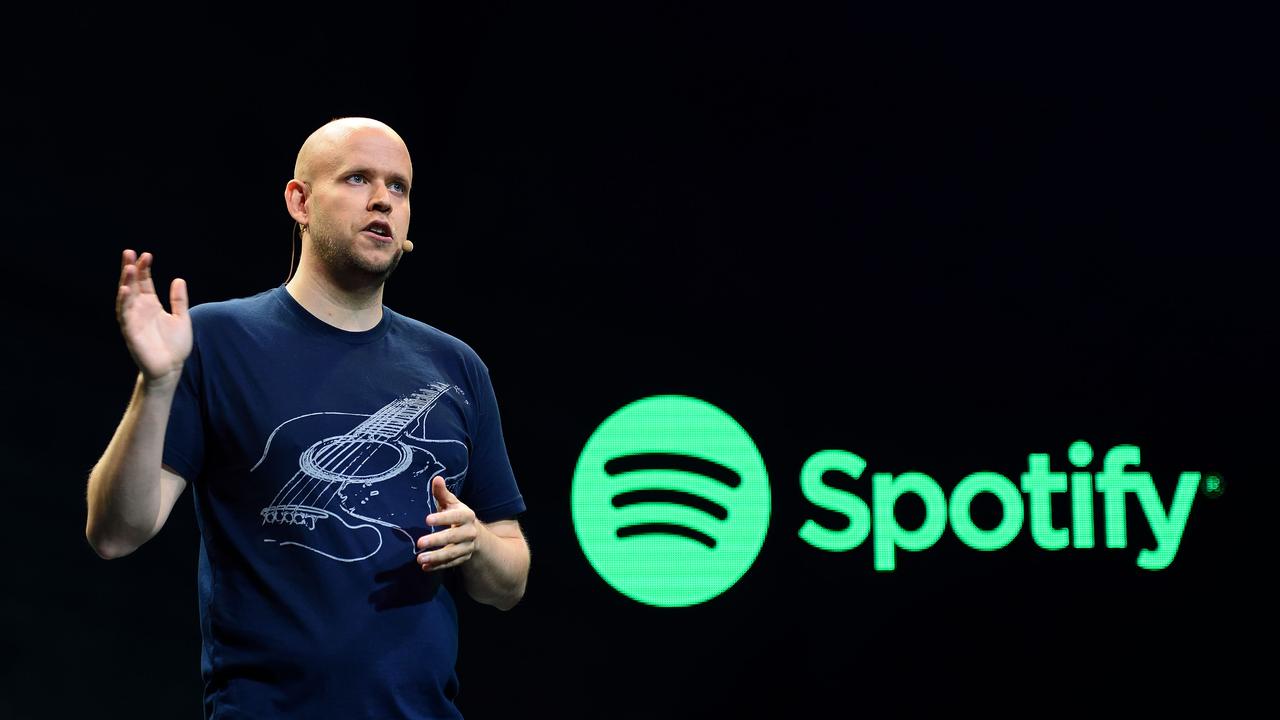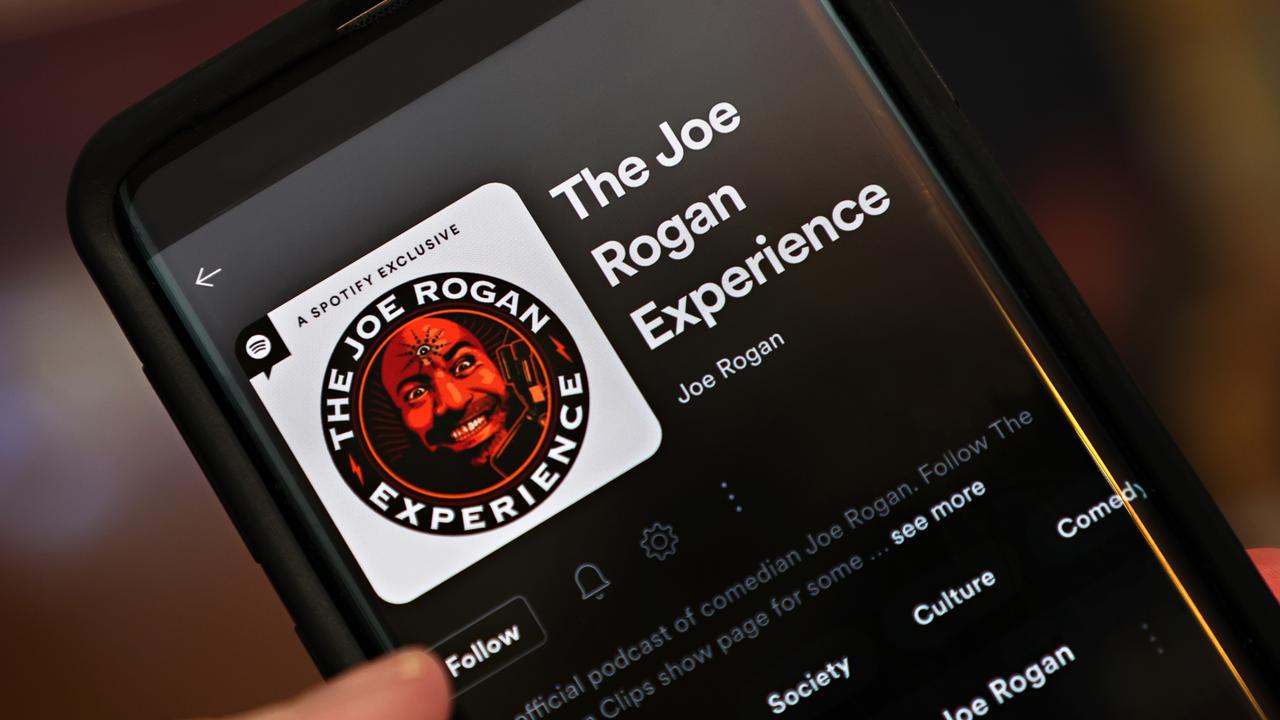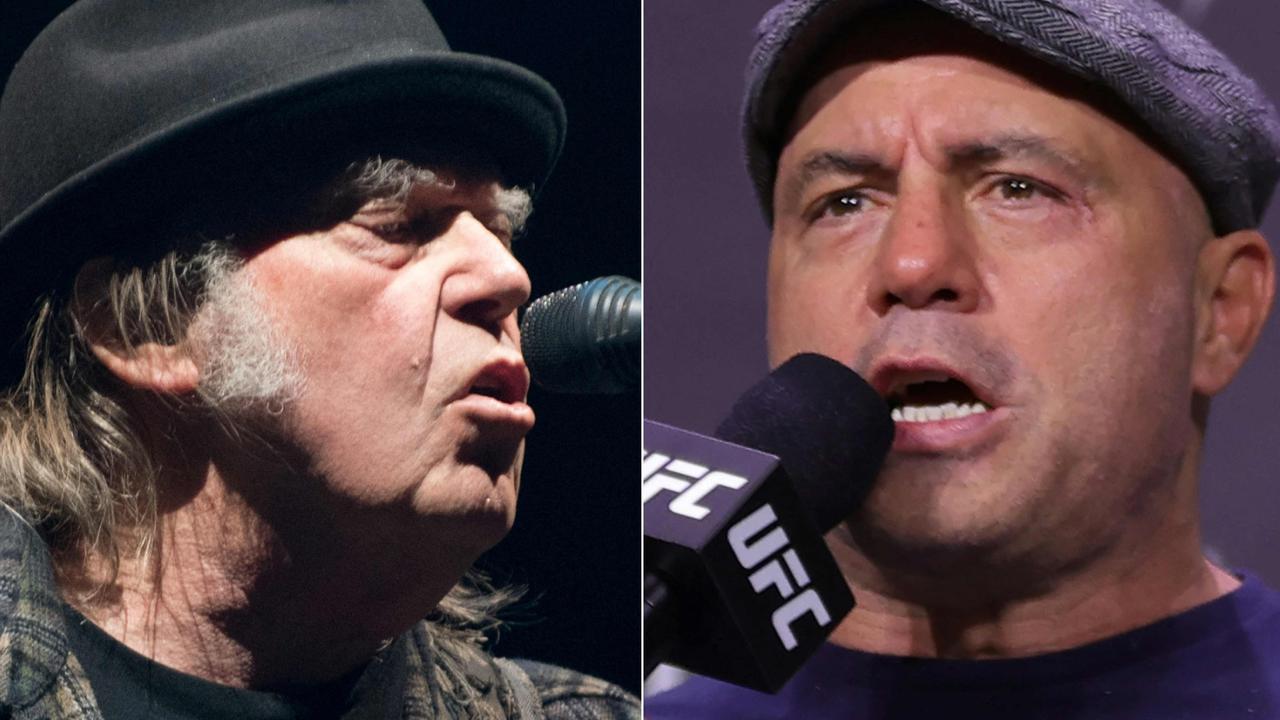
This article is more than
4 year oldSpotify’s CEO has defended the company’s multimillion-dollar deal with Joe Rogan, revealing the controversial podcaster is vital to the streaming service.
Spotify boss Daniel Ek addressed the ongoing saga in a 15 minute speech to employees yesterday, with the company finding itself stuck between its $US100 million flagship talent and a popular backlash over Covid-19 misinformation on his shows.
In 2020, Spotify acquired Rogan’s podcast The Joe Rogan Experience in a landmark deal.
The show is now Spotify’s most popular podcast, with an estimated 11 million listeners per episode.
Mr Ek told employees that while he didn’t agree with everything Rogan said, the company did not have editorial control over his podcast.

“Even though JRE is an exclusive, it is licensed content. It is important to note that we do not have creative control over Joe Rogan’s content. We don’t approve his guests in advance, and just like any other creator, we get his content when he publishes, and then we review it, and if it violates our policies, we take the appropriate enforcement actions,” he said, according to a transcript of the company town hall published by The Verge.
“There are many things that Joe Rogan says that I strongly disagree with and find very offensive.”
However, Mr Ek noted that if Spotify wanted a chance at achieving its “bold ambitions”, then they would have to put up with content “that many of us may not be proud to be associated with’.
“Not anything goes, but there will be opinions, ideas, and beliefs that we disagree with strongly and even makes us angry or sad,” he said.
Shares in the company were down 17 per cent Thursday in New York, as tech stocks dropped across the board.
These shares have been on the slide since November, but have been badly hit by news that its subscriber growth is slowing.

According to The Verge, a number of employees pushed back on the company’s position during a question-and-answer session.
They questioned whether Spotify’s recent actions had done enough to address the concerns of the scientific community and whether the platform’s rules were stringent enough.
Spotify recently announced it would be adding “a content advisory to any podcast episode that includes a discussion about Covid”.
Mr Ek responded by repeating his earlier comments, saying “exclusivity does not equal endorsement”.
“The real thing here is to try to go for an even broader set of exclusives that represent even more voices,” he said.
Joe Rogan misinformation saga explained
Rogan has faced ongoing criticisms of his podcast after repeatedly using the platform to cast doubt on the safety and effectiveness of the Covid vaccines and air misinformation about the virus.
The backlash really ramped up after he interviewed US cardiologist Peter McCullough and vaccine scientist Dr Robert Malone.
Both guests are known for their controversial Covid-19 beliefs and spent hours talking about everything from the efficacy of vaccines, to conspiracy theories on how the pandemic really how the pandemic began and other potential treatments for Covid being “suppressed”.
Rogan was widely condemned for airing dangerous “misinformation”, prompting music legend Neil Young to demand Spotify remove Rogan’s podcast from the platform.
“I am doing this because Spotify is spreading fake information about vaccines, potentially causing death to those who believe the disinformation being spread by them,” he said, specifically citing Rogan’s podcast.

“Spotify has a responsibility to mitigate the spread of misinformation on its platform, though the company presently has no misinformation policy,” he said.
“They can have Rogan or Young. Not both.”
It took Spotify just 48 hours to make its decision, confirming it would be removing Young’s music from the platform.
Since then multiple other artists, including Joni Mitchell, Graham Nash and India. Arie have joined the boycott, calling for their music to be removed from the platform.
Rogan responded to the controversy in a nine-minute video on Monday, with the 54-year-old admitting he “absolutely gets things wrong”.
He also promised viewers he would endeavour to find a “counter” guest shortly after controversial topics were discussed on his podcast.
He insisted his only goal was to interview interesting people on topics of the hour, and claimed much of how he was being perceived came from people forming opinions before actually viewing the podcasts in full.
“I wanted to make this view because I think there is a lot of people who have a distorted perception of what I do, maybe based on sound bites or headlines of disparaging articles.”